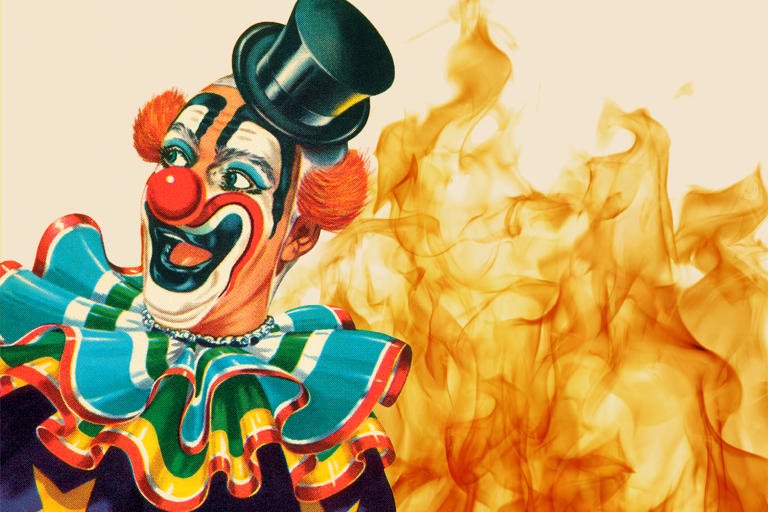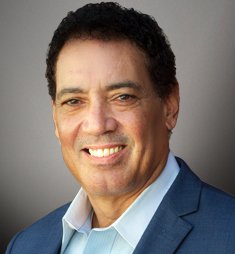
- calendar_month October 30, 2023
- folder Entertainment
For 15 years, psychology professor Philip John Tyson has been teaching classes on phobias. At the start of every semester, he asks his students the same question: What are you afraid of?
Students routinely cited spiders, snakes and claustrophobic spaces, but a consistent minority would say they were “terrified of clowns,” said Tyson, an associate professor of psychology at the University of South Wales. He wanted to know why.

American Shoppers Should Think Twice Before Buying From These 2 Stores
Tyson and his colleagues began researching “coulrophobia” or fear of clowns. Although the prevalence of clown phobia isn’t clear, one recent survey in the United States found that about 5 percent of the population said they were afraid — or very afraid — of clowns. Tyson’s team used its own surveys to identify more than 500 people who suffered from clown fear and then asked them to rate their feelings about clowns.
How often did they think of clowns?
What would they do if they encountered a clown on the street?
How long have they feared the red-nosed jokesters?
In what may be a first-of-its-kind study focusing on the origins of clown fear, the University of South Wales team noticed some distinct patterns in the group. The study, called “Fear of clowns: An investigation into the aetiology of coulrophobia” was published in the journal Frontiers in Psychology. While the research is not based on a representative sample of the population, the findings offer insights into the reasons some people fear clowns, Tyson said.
Related video: 5 Scary Clowns Caught on Camera (Sir Spooks)
Loaded: 13.07%
Pause
Current Time 0:04
/
Duration 5:21
Quality Settings
Captions
Fullscreen

5 Scary Clowns Caught on Camera
Unmute
0
One of the most surprising findings is that for many people, having a “scary personal experience with a clown wasn’t a main contributor to the fear,” Tyson said. Instead, people said they were creeped out by clowns because:

California Will Cover Cost To Install Solar In These Zip Codes
- You can never really know what a clown is thinking. It can be difficult to know what’s really going on in the mind of a clown with a painted on smile or frown. “There’s something about not being able to read facial expressions,” Tyson said. “And the fact that there might be something hidden and dangerous, there might be harmful intent behind the makeup.”
- Clowns are unpredictable. Clowns make some people laugh, but they often behave in unpredictable and startling ways that normal people never would (such as squirting water from a flower or honking a horn). People who are scared of spiders say something similar, worrying the spider will jump on them unexpectedly, Tyson said.
- A clown’s exaggerated features are disturbing. The big red nose, the egg head, the puffs of neon-colored hair. People seem to be scared of beings that look nearly human but not exactly, in the same way some people find baby dolls, aliens or robots disturbing.
- Movie clowns are terrifying. Many of those surveyed also said their fear is due, in part, to movies starring scary clowns, such as Joaquin Phoenix in “Joker” or Pennywise, the demonic clown in Stephen King’s “It.”
The fear of clowns is not entirely born from fiction. The mass murderer John Wayne Gacy, who killed at least 33 teenage boys and young men in the Chicago area, was known to have entertained at children’s parties as “Pogo the Clown.” In a trailer for a Netflix documentary about Gacy, he’s heard saying on tape that “clowns can get away with anything.” More recently, a spate of creepy clown sightings in the United Kingdom and the United States in 2016 caused schools to lock down, which all led King to tweet: “Hey, guys, time to cool the clown hysteria — most of 'em are good, cheer up the kiddies, make people laugh.”
The clowns would like to have a word
Jon Davison, a clown performer, teacher, director and researcher at the London Metropolitan University, said the reports of coulrophobia don’t match up with what he sees himself or hears from other performers. He said that in 38 years of clowning, he has only on two occasions come across fear of clowns. Clowns typically aren’t trying to unnerve or unsettle their audiences when they perform, he said.
“In fact, completely the opposite,” Davison said. The goal is to portray this person who is “helpless, vulnerable and, actually, doesn’t have a clue about how the world works.”
Clowns want audiences to laugh at their performances but they’re also trying to get people to sympathize with their character, who’s often “at the mercy of our society.” “Somehow, you sense the humanity,” he said. “It’s like a little kid.”
What makes somebody creepy?
Tyson and colleagues are in the process of studying whether it’s certain aspects of clown makeup — specifically, the white and red paint — that elicit the fear or phobia.
James Greville, a lecturer in psychology at the University of South Wales, said one theory is that the white face paint can be perceived as a “deathly pallor,” pale and lifeless and something to be avoided. And the red lipstick or accents on a clown’s face may feel threatening because they tap into our wariness of blood or a contagious infection.
Frank McAndrew, a psychology professor at Knox College in Galesburg, Ill., said he “firmly believes” clowns have “wonderful intentions” to entertain audiences, but that doesn’t change whether some people are on guard when they see a clown. People don’t want to become the butt of a joke, McAndrew said.
“Nobody comes out of an interaction with a clown looking dignified,” he said. “For a lot of people who want to present themselves well in public, the clown is a threat.”
In 2016, McAndrew co-wrote a study called “On the Nature of Creepiness,” surveying more than 1,300 people to better understand the behaviors and characteristics that may lead someone to feel creeped out. In one section, the respondents rated 21 different occupations from “not at all creepy” to “very creepy.”
Clowning scored the highest among the group, rating higher in creepiness than a taxidermist, sex shop worker or funeral director.
There’s a lot of uncertainty regarding an interaction with a clown, McAndrew said. You’re not sure how the performer is going to respond — and that can be unnerving.
“There’s this very easy connection between clowns and horror,” he said. “I don’t think they became creepy to us because people started putting them in haunted houses. I think they got put in haunted houses because people found them creepy to begin with.”
